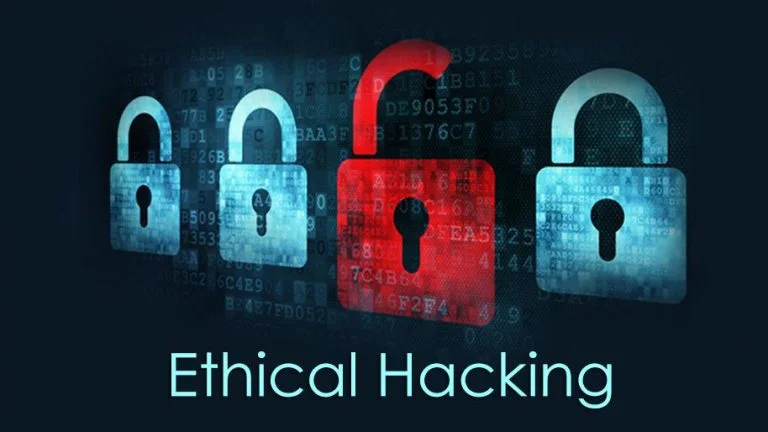In today’s digital age, cybersecurity has become more important than ever. With so much of our personal and professional lives happening online, protecting sensitive data and systems is a top priority. This is where ethical hacking comes in. But what exactly is ethical hacking, and how can you get started? In this blog, we’ll break down the basics of ethical hacking in simple terms and guide you through the steps to begin your journey in this exciting field.
Table of Content
What is Ethical Hacking?
Ethical hacking, also known as white-hat hacking, involves identifying and fixing security vulnerabilities in computer systems, networks, and applications. Ethical hackers use the same techniques as malicious hackers, but with one key difference: they have permission to test the security of a system and work to make it more secure. Their goal is to protect systems from being exploited by bad actors, also known as black-hat hackers.
Why is Ethical Hacking Important?
Cyberattacks are becoming more frequent and sophisticated, causing significant financial and reputational damage to individuals and organizations. Ethical hackers help:
- Prevent Cyberattacks: By finding and fixing vulnerabilities before hackers exploit them.
- Protect Sensitive Data: Ensuring personal and corporate information remains secure.
- Build Trust: Companies that invest in ethical hacking demonstrate their commitment to cybersecurity.
Who Can Become an Ethical Hacker?
Anyone with a passion for technology, problem-solving, and cybersecurity can become an ethical hacker. You don’t need to be a programming wizard to get started, but having a basic understanding of how computers, networks, and the internet work is essential.
Skills Required for Ethical Hacking
To become a successful ethical hacker, you need to develop the following skills:
- Networking Knowledge: Understand how devices communicate over a network.
- Operating Systems: Learn about Windows, Linux, and macOS, as these are commonly targeted systems.
- Programming Basics: Knowing languages like Python, JavaScript, or Bash can help you write scripts to test systems.
- Security Tools: Familiarize yourself with tools like Nmap, Wireshark, Metasploit, and Burp Suite.
- Problem-Solving Skills: Think creatively to find and exploit vulnerabilities.
Steps to Get Started with Ethical Hacking
If you’re new to ethical hacking, follow these steps to begin your journey:
1. Understand the Basics of Cybersecurity
Learn the fundamentals of how systems, networks, and applications work. This includes understanding firewalls, encryption, and common attack methods like phishing or malware.
2. Learn Networking
Networking is the backbone of ethical hacking. Study topics like IP addresses, ports, and protocols (e.g., TCP/IP, DNS, and HTTP). Books like “Computer Networking: A Top-Down Approach” can be a great resource.
3. Get Comfortable with Linux
Linux is widely used in cybersecurity because of its flexibility and tools. Start by learning basic Linux commands and then explore penetration testing distributions like Kali Linux or Parrot OS.
4. Explore Ethical Hacking Tools
Familiarize yourself with popular tools used by ethical hackers:
- Nmap: For network scanning and mapping.
- Wireshark: For analyzing network traffic.
- Burp Suite: For testing web applications.
- Metasploit: For exploiting vulnerabilities.
5. Take Online Courses
Platforms like Coursera, Udemy, and Cybrary offer beginner-friendly courses on ethical hacking and cybersecurity. Look for certifications like:
- Certified Ethical Hacker (CEH)
- CompTIA Security+
- Offensive Security Certified Professional (OSCP)
6. Practice in a Safe Environment
Use virtual labs to practice ethical hacking without risking real systems. Platforms like Hack The Box, TryHackMe, and OverTheWire provide challenges to test your skills.
7. Stay Updated
Cybersecurity is a constantly evolving field. Follow blogs, forums, and news sites to keep up with the latest threats, tools, and techniques.
The Legal Side of Ethical Hacking
It’s important to note that ethical hacking should always be done with permission. Unauthorized hacking is illegal and can result in severe consequences. Always ensure you have explicit consent before testing any system.
Benefits of Becoming an Ethical Hacker
- High Demand: With the rise in cyber threats, ethical hackers are in high demand.
- Well-Paid Careers: Ethical hackers earn competitive salaries, especially with certifications.
- Job Satisfaction: Helping organizations stay secure is rewarding and impactful.
- Exciting Work: Ethical hacking involves solving complex problems and staying ahead of malicious hackers.
Conclusion
Ethical hacking is a fascinating and rewarding field that plays a critical role in cybersecurity. By learning the basics, building your skills, and practicing in safe environments, you can start your journey to becoming an ethical hacker. Remember, the key to success is continuous learning and staying curious about how technology works. So, take the first step today and explore the world of ethical hacking—it’s a journey full of opportunities to make the digital world a safer place.


